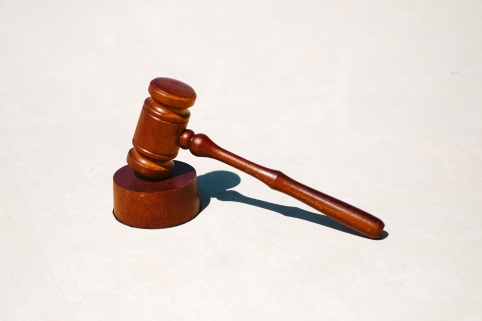Maldives Bay Pvt Ltd v MIRA [2023] SC 12
On 5 April 2023, the Supreme Court handed down the judgement in a case which provided clarity on the interpretation of Section 15 of the Goods and Services Tax Act1 (“GST Act”), holding that Tourism Goods and Service Tax (“TGST”) can only be levied on goods and services of a tourist establishment supplied to a tourist.
Background
- A dispute arose between Maldives Bay Pvt Ltd (“Maldives Bay”) – operator of Angsana Velavaru tourist resort, and Maldives Inland Revenue Authority (“MIRA”) with regards to the applicable rate of GST to the supply of certain capital assets (which included sand barges and fire pumps) by Maldives Bay to Sanctuary Sands Maldives Pvt Ltd – the owner of the tourist resort.
- Maldives Bay had charged GST on the supplies in question at the general sector GST rate of 6%. However, the invoices issued by Maldives Bay stated the TIN of Angsana Velavaru which is registered for the tourism sector.
- MIRA’s position was that GST must be charged on the supplies at the tourism sector rate of 12% as the TIN stated in the invoices issued to Angsana Velavaru, and as Maldives Bay had not registered for general sector GST.
- Maldives Bay contested the MIRA’s decision on the grounds that the assets were not supplied by Angsana Velavaru and therefore are not tourism sector goods. The Tax Appeal Tribunal decided that the assets supplied by Maldives Bay are not considered to be “tourism goods” according to Section 15(a)(1) and Section 15(a)(2) of the GST Act.
- On appeal by MIRA at the High Court, the Tax Appeal Tribunal’s decision was overturned.
- The High Court found that goods and services supplied by Maldives Bay are presumed to be tourism goods and services as the company’s main business is the operation of the tourist resort and as it is registered for GST in the tourism sector. The High Court’s such findings were also based on the fact that the invoices issued by Maldives Bay included a tourism sector TIN.
Issue
The issue before the Supreme Court was whether the goods supplied by Maldives Bay to Sanctuary Sands were subject to GST at the tourist sector rate of 12% or at the general sector rate of 6%.
Supreme Court’s Decision
- The Supreme Court unanimously allowed the appeal by Maldives Bay, holding that the tourism GST rate will be applicable to goods and services that are supplied to customers of tourist establishments, i.e. tourists, registered at the Ministry of Tourism.
- The Court observed that the assets in question were supplied under the lease agreement entered into between Maldives Bay and Sanctuary Sands, and that MIRA never contested the fact that the sale of the assets were capital expenditures of the resort for which the lessor is responsible under the agreement. It was also observed by the Court that these assets were not supplied to the customers of the tourist establishment, but to the owner of the tourist resort.
- Furthermore, the Court noted that although Maldives Bay has not registered for the general sector, MIRA may register Maldives Bay to the correct sector of GST as MIRA does in other cases where a taxpayer had registered to the wrong sector.
- In summary, the Supreme Court held that:
- The GST rate under the GST Act is determined based on the nature of goods and services supplied by a taxable activity, and not by reference to the sector for which a taxpayer may have registered nor based on the TIN number used by the taxpayer. Hence, the tourism sector GST rate is only applicable to goods and services supplied by a tourist establishment to its customers.
- No tax can be levied unless it is provided in a statute enacted by the Parliament and the same rule also applies when determining which of the two GST rates to apply.
- Where a taxpayer has registered under the wrong sector of GST, MIRA may follow its general practice of registering the taxpayer to the correct sector and there are no legal barriers to that practice of MIRA.
Commentary
This is the first ever case decided by the Supreme Court concerning the imposition of GST. GST is imposed under 2 main categories: tourism GST and general GST, where the rates also differ. Under Section 15(a)(1) of the GST Act – the section relevant to this case – the TGST is applicable to tourism establishments (i.e. taxable activity) authorised by the Ministry of Tourism. As such, it was necessary to make a distinction between the supplies made by the taxable activity and the person conducting that taxable activity. The Supreme Court’s judgement makes it clear that the distinction must be made based on the nature of the goods and services offered by the taxable activity. On that basis, the Supreme Court concluded that the tourism sector GST can only be levied on the goods and services supplied to the customers of the tourism establishment, i.e. tourists.
The Court also highlighted the importance of the very fundamental nature of the tax mechanism in the Maldives contained in Article 97(b) of the Constitution which provides that the State can only levy a tax if a statute enacted by the Parliament of the Maldives so provides.
Maldives Bay was represented by the lawyers of CTL Strategies LLP in these proceedings.



